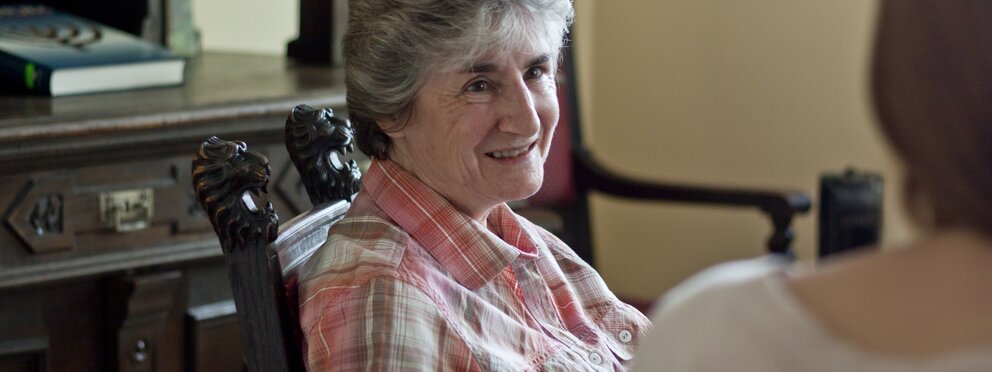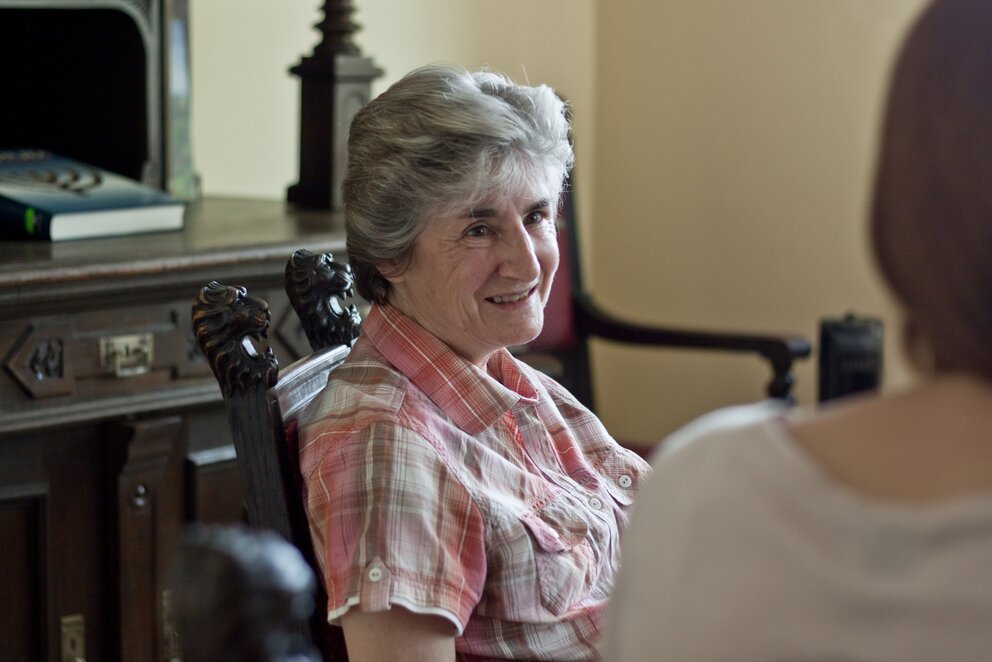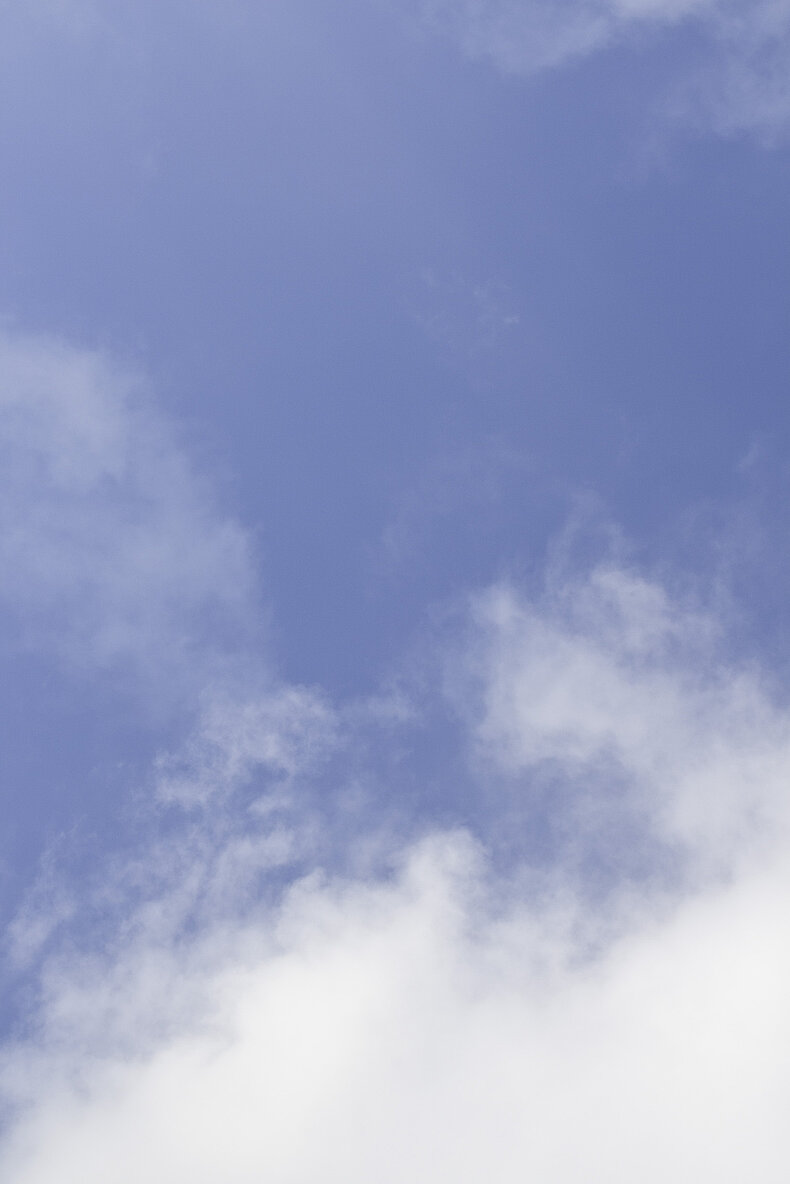
Mary O'Sullivan
About Sister Mary
Sister Mary O'Sullivan was born in England in 1947. However, her home is Ireland, where her family comes from and where she grew up with her younger brother. Her parents both worked in British industry during the Second World War. Sister Mary describes them as her "first teachers of peace", whose memories and engagement with history brought her into contact with the subject of war for the first time. At the age of 18, she decided to join the Sisters of Mercy and dedicate herself specifically to working with young people. After a year of work in Israel, where she met survivors of the Shoah for the first time, she decided to work for the "Centre for Dialogue and Prayer Auschwitz". Here she devotes herself to planning, implementing and accompanying programmes for visitors from all over the world, their encounters with the site and with survivors. In her work, she and her colleagues create a space for debate, remembrance, encounters and dialogue.
»Auschwitz is no more! What we have is the memory and that’s what we honour.«

A picture to live on
When asked what had helped her to start a new life, Eva Weyl did not immediately know the answer. It was only in the course of the conversation that she suddenly said: "The death of my mother". Because the burden of the past was always present, the relationship between mother and daughter was strained and a burden for Eva. Almost justifying herself, Eva explained that it was only after her mother's death that she realised what a burden had been lifted from her. The image of the sky on the day of our conversation was our joint depiction of this late-won freedom.

Our encounter
We met at the Centre for Dialogue and Prayer at the Auschwitz Memorial. This place is her current home and she lives there to accompany other people as they come to terms with themselves and the site of Auschwitz. She also "took us by the hand" at this place. At first, it was the unusual feeling of receiving someone's full attention - without the other person's gaze wandering to their mobile phone or another person. Sister Mary lives in the now, in a place, the past.
In addition, Sister Mary gave answers that rarely referred to herself, but were always full of understanding for the other person. And she gave answers that were quiet, unagitated, but full of strength. At our first meeting, we were so overwhelmed by her wise and inspiring statements that, immediately realising that Sister Mary is a very special woman, we quickly tried to write down quotes on notepads and immediately afterwards we were sure that we would have to speak to her again in more detail.
Another example of Sister Mary's nature is our reunion after a year. I hadn't contacted her for far too long and formulated my guilty conscience, which I was carrying around with me as a result, in a long-winded apology. She looked at me briefly and said simply with a smile: "Some tasks take time."
At the same time, she bubbles over with cheerfulness, joie de vivre and humour in a place of horror. She brings lightness to every encounter, so I simply had to ask her how you can live in this place without the horror overwhelming you. Surprisingly, she replied that as soon as this place no longer touched her, she would look for a new job. Auschwitz was intense, not cruel, and it needed intensity in order to develop.
I took these thoughts with me to the Birkenau subcamp the next day. We had time to explore this place again alone and in peace, to let it take effect. In contrast to my last visit, this time I was able to draw strength and courage from the place. Sister Mary's statement made me realise that this place is the past and offers me and all of us a chance to grow. I thought about ZWEITZEUGEN and all the great people behind the project and I found courage and confidence there, in a corridor between barbed wire fences.
Sister Mary passed away in 2023, we miss her very much.
